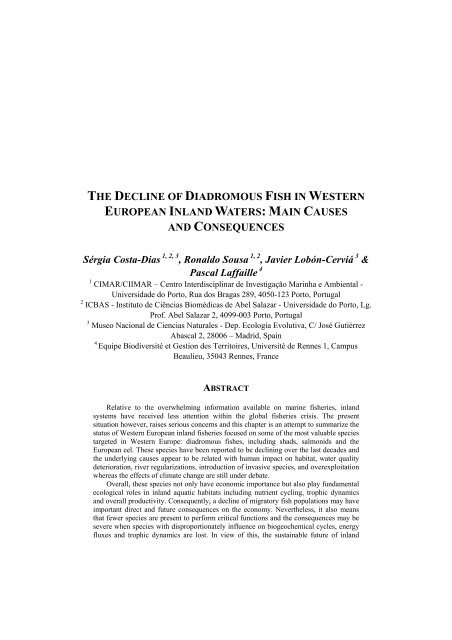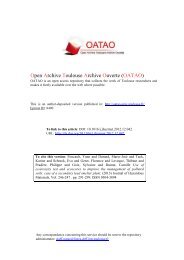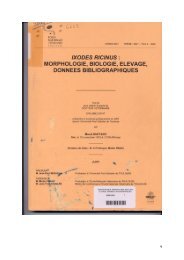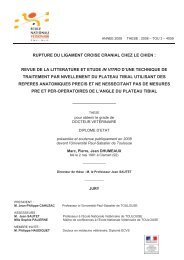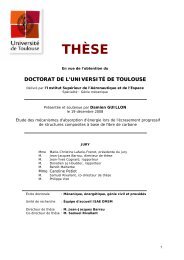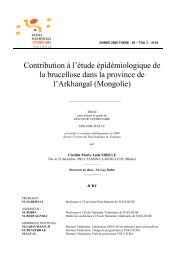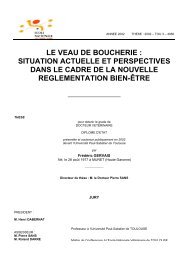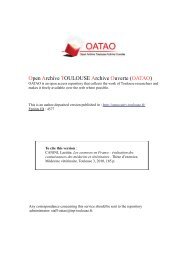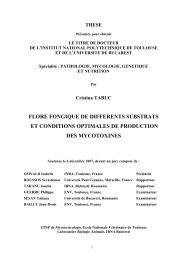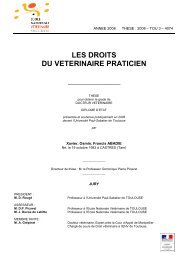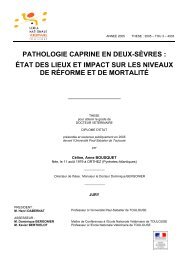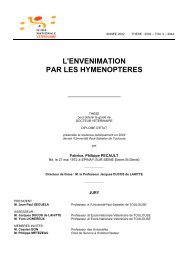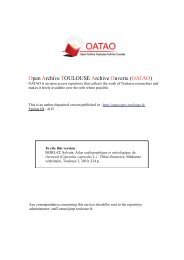PDF ( Author's version) - OATAO (Open Archive Toulouse Archive ...
PDF ( Author's version) - OATAO (Open Archive Toulouse Archive ...
PDF ( Author's version) - OATAO (Open Archive Toulouse Archive ...
Create successful ePaper yourself
Turn your PDF publications into a flip-book with our unique Google optimized e-Paper software.
THE DECLINE OF DIADROMOUS FISH IN WESTERN<br />
EUROPEAN INLAND WATERS: MAIN CAUSES<br />
AND CONSEQUENCES<br />
Sérgia Costa-Dias 1, 2, 3 , Ronaldo Sousa 1, 2 , Javier Lobón-Cerviá 3 &<br />
Pascal Laffaille 4<br />
1 CIMAR/CIIMAR – Centro Interdisciplinar de Investigação Marinha e Ambiental -<br />
Universidade do Porto, Rua dos Bragas 289, 4050-123 Porto, Portugal<br />
2 ICBAS - Instituto de Ciências Biomédicas de Abel Salazar - Universidade do Porto, Lg.<br />
Prof. Abel Salazar 2, 4099-003 Porto, Portugal<br />
3 Museo Nacional de Ciencias Naturales - Dep. Ecología Evolutiva, C/ José Gutiérrez<br />
Abascal 2, 28006 – Madrid, Spain<br />
4<br />
Equipe Biodiversité et Gestion des Territoires, Université de Rennes 1, Campus<br />
Beaulieu, 35043 Rennes, France<br />
ABSTRACT<br />
Relative to the overwhelming information available on marine fisheries, inland<br />
systems have received less attention within the global fisheries crisis. The present<br />
situation however, raises serious concerns and this chapter is an attempt to summarize the<br />
status of Western European inland fisheries focused on some of the most valuable species<br />
targeted in Western Europe: diadromous fishes, including shads, salmonids and the<br />
European eel. These species have been reported to be declining over the last decades and<br />
the underlying causes appear to be related with human impact on habitat, water quality<br />
deterioration, river regularizations, introduction of invasive species, and overexploitation<br />
whereas the effects of climate change are still under debate.<br />
Overall, these species not only have economic importance but also play fundamental<br />
ecological roles in inland aquatic habitats including nutrient cycling, trophic dynamics<br />
and overall productivity. Consequently, a decline of migratory fish populations may have<br />
important direct and future consequences on the economy. Nevertheless, it also means<br />
that fewer species are present to perform critical functions and the consequences may be<br />
severe when species with disproportionately influence on biogeochemical cycles, energy<br />
fluxes and trophic dynamics are lost. In view of this, the sustainable future of inland


